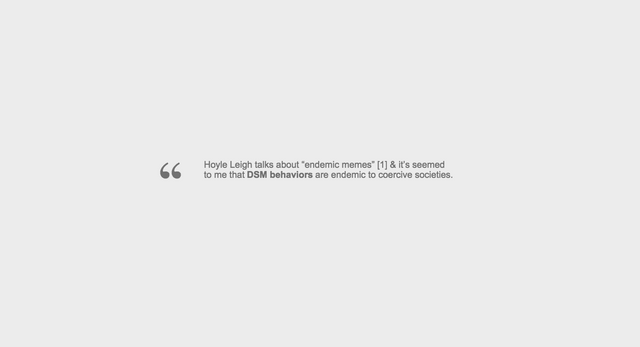
I recently published a model for what I call New Psychiatry, an integrated model that looks at how legal systems and brains interact.[2] The model is an attempt to formalize a framework for psychiatry that is not biased to a specific legal system, and is meant to be a framework for conversation and debate.
The model takes a long-view, zoomed out perspective, and proposes that what we call mental illness is deeply coupled to the concept of monopoly on violence. It puts forth that mental illness as we know it is a form of mediated behavior, behavior that is shaped by mediation from a legal system, enforced through a monopoly on violence.
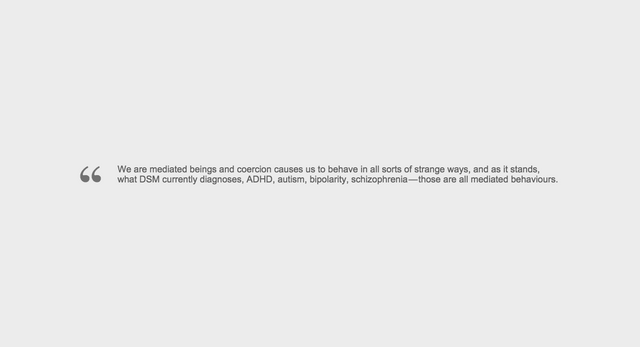
Eusociality and the evolution of legal systems
Human behavior is a product of both internal and external mediation. We evolved as social creatures, and our brains are adept at writing rules that mediate how we operate together. Our ability to write laws, and to replicate those laws, is very much what it means to be human, and the basis for how cultures evolve.
The legal systems we create inform and mediate the way we behave, in constant feedback with our internal laws. There is a seamless continuity between internal mediation and external mediation, the two work together, and this duality is what it means to be human, we are social creatures, both individuals and collectives at the same time.
Coercive laws and voluntary laws
Law can be divided into two types of law: voluntary law, and coercive law. Voluntary law is when a law is agreed upon, because it makes life simpler for all parties involved, and is something desirable. Coercive law is when a law is forced upon someone who has not agreed to the law.
Internal mediation meets legal mediation
The word legal derives from loyal, and the human brain is designed to select laws that are loyal to the self, not to the super-organism of the state. Voluntary law easily integrates with the internal state of an individual, and the two work together to extend the capacity of the individual. Coercive law does not integrate at all with inner mediation, and is instead constantly fought off the way a body would reject an implant.
Resisting coercion and enslavement
When a brain resists a coercive law, there’s an integrated response that follows a repeating pattern. The amgydala activates a fight and flight response and attenuates the hippocampal dendritic connections resulting in a disconnection between long-term memory and mediation, characterized by an ongoing pattern of inattention and/or hyperactivity-impulsivity as the brain searches for alternative mediation from its peers. Curiously, this is also the definition of the disorder Attention Deficit Hyperactive Disorder.
Attention-deficit/hyperactivity disorder (ADHD) is a brain disorder marked by an ongoing pattern of inattention and/or hyperactivity-impulsivity that interferes with functioning or development.
In other words, the ADHD response is the first stage in the fight and flight response, still a relatively mild rejection process. DSM III talks about a ‘pecking order of symptoms’, where ADHD is one of the milder disorders.
This same pecking order of responses is present when you tame other animals.
If the ADHD fight and flight response fails, and no alternative mediation can be found, the brain either accepts the law, or it goes into a more extreme phase where long-term memory is restored, but the initial flight response remains. The brain gets locked in a bipolar mode, internally it remembers the law and goes along with it, but it also builds up an increased internal drive to escape. And when pushed to an extreme, the brain goes into schizophrenia where long term memory still conforms to the legal mediation, while the internal drive to escape has grown and mutated to become stronger than the suppressive drive. If these responses fail to fight or flight the infectious mediation, the brain goes into depression and a docile mode, and is easily domesticated.
Statists are unable to discern between behavior coming from the individual, and behavior that stems from coercive legal mediation. The enforced behavior is by them perceived as behavior coming from the individual.
Voluntary law and the fight and flight response
The initial fight and flight response, characterized by an ongoing pattern of inattention and/or hyperactivity-impulsivity, signals to the peers that the external mediation is being rejected. Those peers respond with empathy, and weigh the problem based on their own memories. The process goes on and on until a solution can be found.
Within voluntary and non-mediated cultures, the behaviors that we call mental illness are instead seen as legitimate by ones peers, who respond as if the feelings were their own. Intense emotions like anger or distrust is something positive in a culture where emotions are allowed to be free, it’s part of the self-regulating properties of free markets.
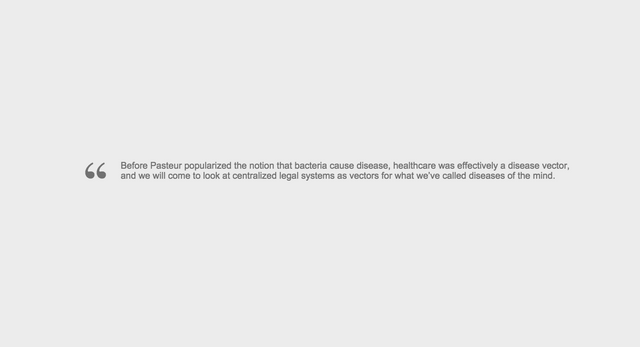
The benefits psychiatry gave society
If mental illnesses are how humans respond to coercion, is there not anything positive about psychiatry ?
The human brain has a memory limit known as dunbar’s number, and this limitation makes it hard for humans to organize large-scale societies without hierarchies. Hierarchies are per definition built on the existence of a pecking order. It could be argued that un-fairness was a necessary evil as there were no other ways to organize society. From that perspective, psychiatry has been a form of damage control system, that tried to prevent people from falling victim to the most extreme underdog positions.
The treatment for diagnoses is often aimed at transcending and conquering the under-dog position. Hysteria was treated through inducing a flow-state and a state of self-transcendence, by giving the subject an orgasm. Electro-convulsive therapy (ECT), used for schizo-depressive disorders, induced electric currents that passed through the brain, leading to synaptic remodeling in both sub-cortical and frontal cortical circuits. The effect of ECT is better understood through its successor trans-cranial magnetic stimulation (TMS), which recently become a consumer product, allowing you to give yourself a buzz that induces ‘artificial flow’, causing diminished frontal lobe activity, and self-transcendence. Autism has been treated through inducing trust using artificial oxytocin, in an attempt to dampen the elevated self-awareness, vigilance and political hyper-awareness that is innate in patients with extreme introversion. ADHD was treated through increasing the fight response, through dopaminergic pharmaceuticals that increased wakefulness, focus and attention, treating this mild form of obedience through encouraging the subject to conquer a social position that they felt comfortable with.
It could be argued that these treatments have tried to right the wrongs of society. It could be argued that they helped, and from a myopic perspective that might be true. But, there is little evidence that the cultural phenomena psychiatry has been a net positive for society. The whole industry that surrounded it is one of those finite games that drain a lot of resources, but spew out little value in return. A more informed conclusion would be that psychiatry was part of a very primitive form of human organization that produced more problems than it solved.
The fact that the old psychiatry seemed to miss is that obedience is the disease, and the diagnoses of the DSM just symptoms. The new psychiatry should not be about stabilizing obedience but instead about curing it. The focus on a new psychiatry should be to purge the mind of infectious and coercive mediation, and to treat the fear anxiety that gets in the way of self-determination.
Where do we go from here ?
Technologies are being developed that make it possible to organize in ways that scale beyond dunbar’s number. These technologies allow for ‘technologically-mediated anarchy’, economic protocols that mirror the sort of organization that anarchists have proposed all along, and it’s going to make current society look like the middle ages.
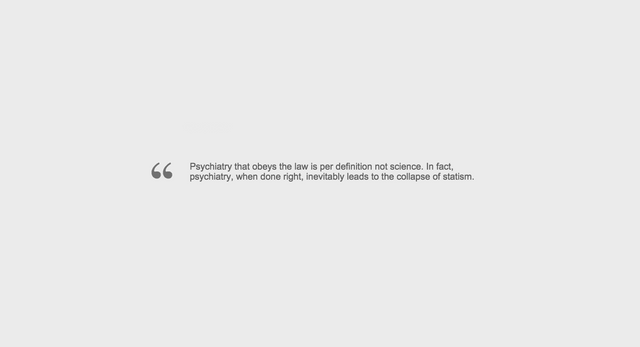
Conclusion and summary
Everything we call mental illness is caused by coercive legal mediation. Pharmaceuticals can turn the knobs and levers that regulate our brain. To tweak someone else’s brain chemistry in order to make them give up their loyalty to a law that they do not consent with, is ethically wrong. The only ethical response is to aid them in their fight against whatever or whoever it is that coerces them.
The only way psychiatry is a science is if it’s a science that explores how to domesticate humans the way one domesticates animals. As a science of domestication, concepts such as ADHD, Autism, Bipolarity, etc, are all useful and scientifically valid. But as a science of healthcare, it is utter rubbish and no less pseudo-science then the art of tapping people’s blood was 200 years ago.
Only after we learn to operate as a decentralized and autonomous society will we fully transcend that which we have called mental illnesses, and grow the resources to care for each and everyone as if they were ourselves. Not out of egoism, but out of a heightened understanding of how society operates at the scales that we have grown to. Our perception runs counter-intuitive to how society behaves at a protocol level, and mental illnesses were the price we paid for our myopic perspective.
In conclusion, it’s very probable that psychiatry and DSM have had an adverse effect on culture and social evolution as they normalized coercion using a sort of pseudo-science that had more to do with government and law-enforcement than with the study of the human mind.
References
Genes, Memes, Culture, and Mental Illness
What produces mental illness: genes, environment, both,neither? The answer can be found in memes-replicable units of information linking genes and environment in the memory and in culture—whose effects on individual brain development can be benign or toxic.
- Hoyle Leigh
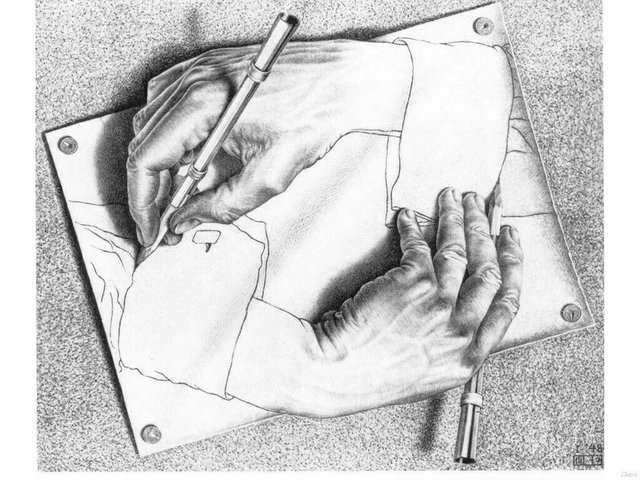
Hello johan-nygren, we would like to inform you that you have been chosen as a featured author by the @robinhoodwhale initiave. We are currently in alpha testing, if you would like more info join robinhood chat on steemit.chat or pm @repholder.
Nicely done - Keep on Steeming!
Downvoting a post can decrease pending rewards and make it less visible. Common reasons:
Submit
It is an interesting discussion to have. There are many who say that we live in a "toxic" society which is the source of so much psychopathology. There is also a culture of people wanting easy fixes for psychological problems.
It is cheaper and easier to take a pill than to develop new behaviours or undergo psychotherapy such as CBT.
Medication is also a lot cheaper than changing our society and cultural environment.
Downvoting a post can decrease pending rewards and make it less visible. Common reasons:
Submit
It's not that society is toxic, it's that we have been unable to engineer social systems were people can act as free beings. Johann Gevers says it brilliantly in his talk "The Four Pillars of a Decentralized Society",
Top-down control has been a natural emergence, just like a bee-hive or a termites colony, but it caused friction and the enslavement of a large part of the population. Sterlin Lujan talks about "Consensus Delusion and Psychiatric Immunity".
Hoyle Leigh talks about how "what produces mental illness: genes, environment, both, neither? The answer can be found in memes-replicable units of information linking genes and environment in the memory and in culture—whose effects on individual brain development can be benign or toxic.
Top-down control to uphold consensus of a nation-state meant that some people were more valuable to society than others. Their memes were favored, they had "psychiatric immunity", and those who were sacrificed were labeled as "mentally ill". This has been natural.
As we decentralize everything, this will become a thing of the past, and we enter an age of hyper-economics where there will be no need for trust-silos such as "left" vs "right" or "sane" vs "insane" and ideology as a whole. Those are beliefs that enabled nation-states, and will not be necessary as we transition into "machine-states" and Decentralized Borderless Virtual Nations (DBVNs).
Downvoting a post can decrease pending rewards and make it less visible. Common reasons:
Submit
Interesting. Great article by the way:)
Downvoting a post can decrease pending rewards and make it less visible. Common reasons:
Submit
Very interesting topic, thank you for sharing. (from Irish trainee lawyer)
Downvoting a post can decrease pending rewards and make it less visible. Common reasons:
Submit